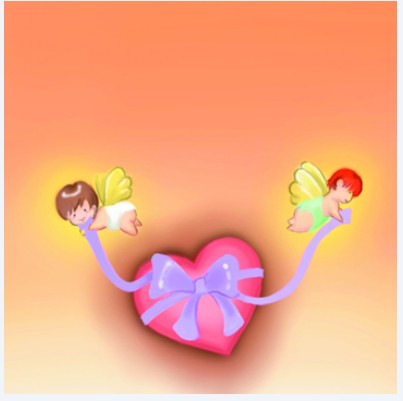找谁倚靠—我们都是有故事的人(慢速) 来自内心的礼物
- 听力原文
- 参考译文
Gifts from the heart

According to legend①, a young man while roaming② the desert came across a spring of delicious crystal-clear water. The water was so sweet. He filled his leather canteen③ so that he could bring some back to a tribal④ elder who had been his teacher. After a four-day journey he presented the water to the old man who took a deep drink, smiled warmly and thanked his student lavishly for the sweet water. The young man returned to his village with a happy heart.
Later, the teacher let another student taste the water. He spat⑤ it out, saying it was awful. It apparently had become stale⑥ because of the old leather container. The student challenged his teacher, “Master, the water was foul. Why did you pretend to like it?”
The teacher replied, “You only tasted the water. I tasted the gift. The water was simply the container for an act of loving-kindness and nothing could be sweeter.”
I think we understand this lesson best when we receive innocent gifts of love from young children. Whether it’s a ceramic⑦ tray⑧ or a macaroni⑨ bracelet, the natural and proper response is appreciation and expressed thankfulness because we love the idea within the gift.
Gratitude doesn’t always come naturally. Unfortunately, most children and many adults value only the thing given rather than the feeling embodied⑩ in it. We should remind ourselves and teach our children about the beauty and purity of feelings and expressions of gratitude. After all, gifts from the heart are really gifts of the heart.
① legend n. 传说,传奇故事
② roam v. 漫步,漫游
③ canteen n. 水壶,食堂
④ tribal a.(通常作定语)部落的
⑤ spit v. 吐出
⑥ stale a. 不新鲜的,陈腐的
⑦ ceramic a. 陶瓷的 n. 陶瓷器(常复数形式)
⑧ tray n. 盘,碟
⑨ macaroni n. 通心粉
⑩ embody v. 体现,使具体化
来自内心的礼物
有 这样一个传说:一个年轻人在沙漠里漫游时偶然发现了一眼清泉。泉水清冽甘甜,于是年轻人用随身的革制水壶盛了一壶,想要带回去送给部落里一位曾做过他老师 的老人。四天跋涉后,他终于将水送给了老人。老人满满饮了一口,露出了使人如沐春风的笑容,他对泉水的甘冽赞不绝口,也毫不吝惜对学生的感谢之词。于是年 轻人满心欢喜地回村去了。
后来,老师请另外一位学生尝了尝泉水。学生一喝便吐了出来,说难喝极了。显然,水因为装在老旧的革制水壶里而不新鲜了。于是学生找到老师,质疑地问道:“老师,水明明难以下咽,你为什么还假装很喜欢?”
老师说:“你尝到的仅仅是泉水,而我品到的则是馈赠。泉水不过是满盛着善举的容器罢了,没有什么比善举更能沁人心脾了。”
我想在我们收到孩子们充满爱心的、纯洁的礼物时可以很好地理解这个道理。不管那礼物是用陶瓷制的盘子还是用通心粉做的手镯,最自然和最合适的回应都是欣赏和表达谢意,因为我们喜欢这礼物所包含的心意。
感恩之心并不是与生俱来的。不幸的是,多数孩子和许多成人仅仅在乎所得的价值而不是礼物所承载的深情。我们应该时刻提醒自己,也要教育我们的子女,感激之情有多么美丽与纯洁,以及如何表达感恩的心情。不管怎样,发自内心的馈赠才是盛满了真心的礼物。
心存感激,品读心意,原来生活可以如此美丽。
- 频道推荐
- |
- 全站推荐
- 推荐下载
- 网站推荐




















